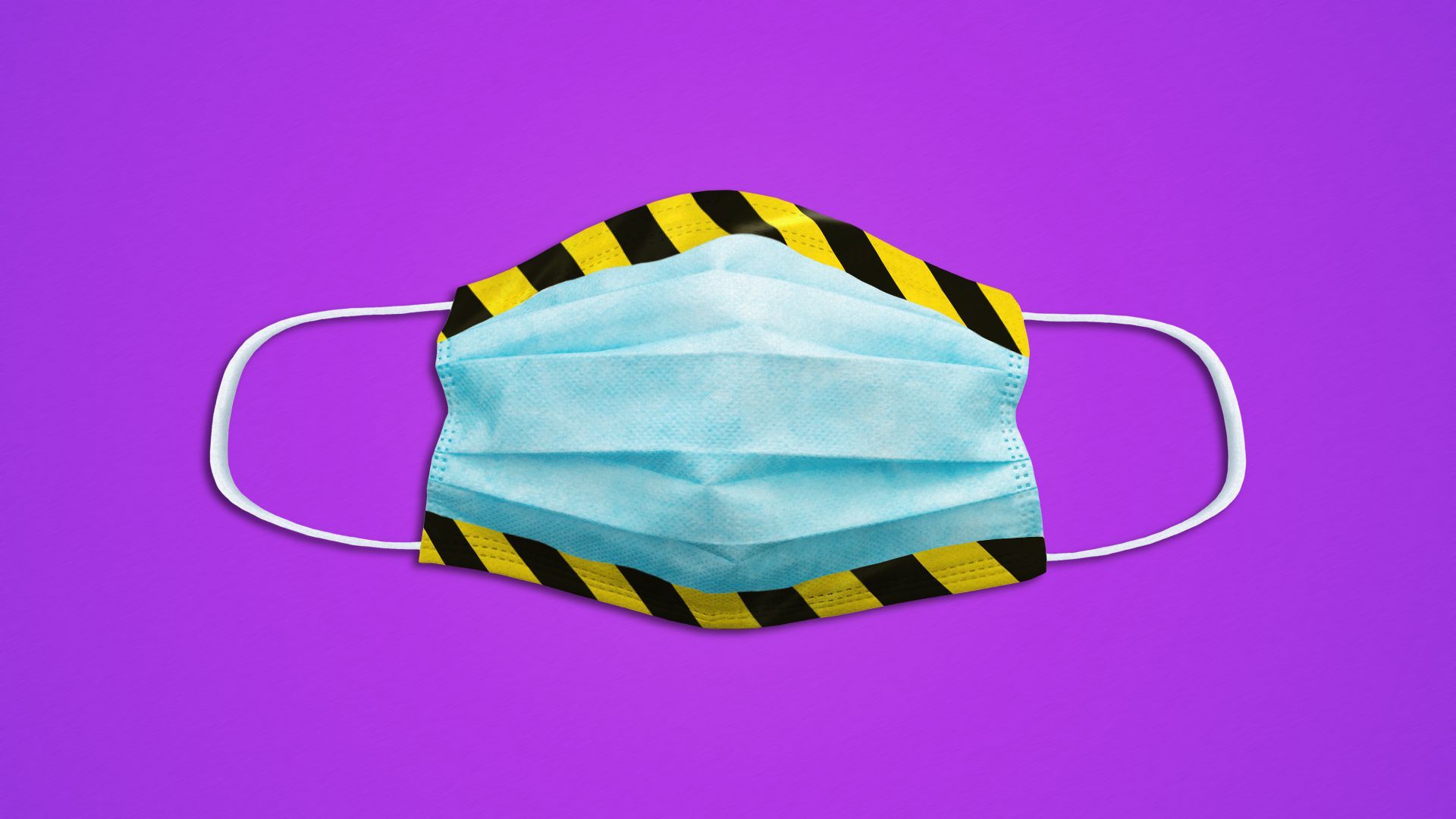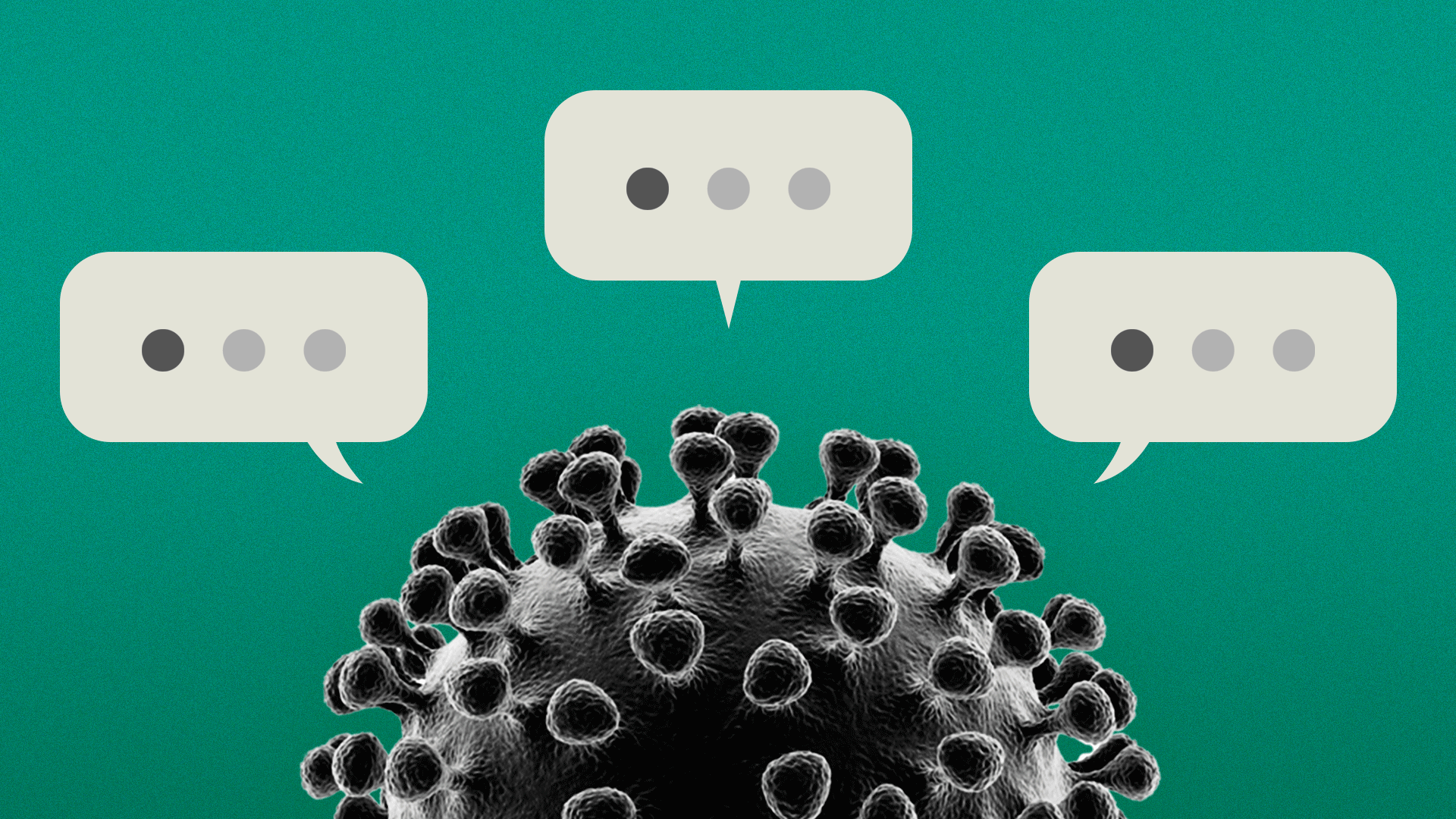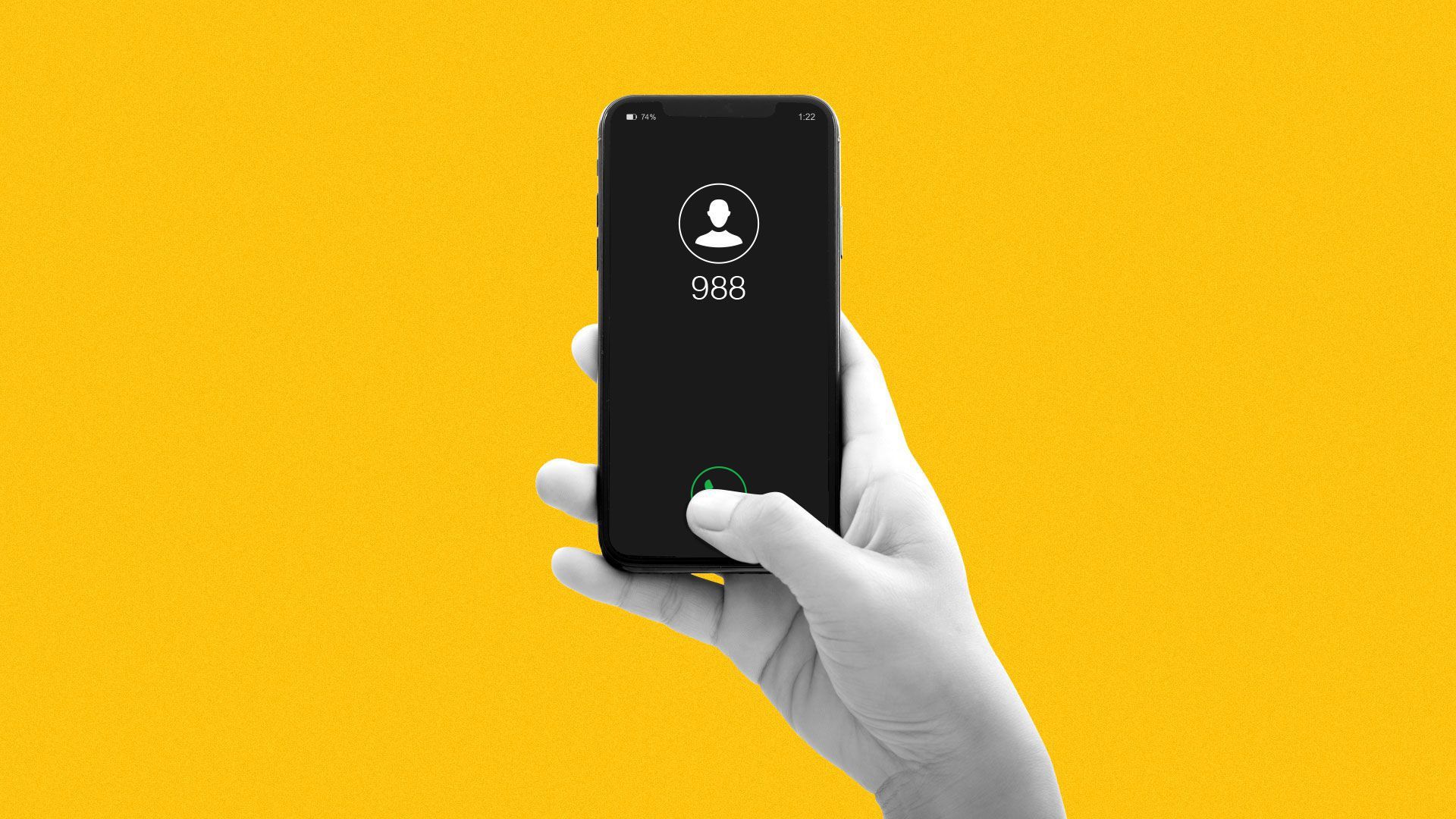| | | | | | | | | | | Axios Vitals | | By Tina Reed · Apr 20, 2022 | | 🐫 Good morning, Vitals readers. Today's newsletter is 1,086 words or a 4-minute read. In what is truly some news you can use, science has taken on the question of why twisting Oreos always seems to result in the creme filling sticking to one side of the cookie... | | | | | | 1 big thing: Parents await vaccine news for young kids as lines of defense disappear |  | | | Illustration: Megan Robinson/Axios | | | | The demise of the federal transportation mask mandate was particularly jarring for many parents of children under 5 anxiously waiting for word on when COVID shots will become available to their kids. State of play: There's still a wait ahead. - Pfizer CEO Albert Bourla said this week said his company aimed to get vaccines out by June if regulators agree.
- Moderna CEO Stéphane Bancel likewise told Yahoo Finance late last month that his company's vaccine likely won't be available for "a couple of months ... not a couple of weeks" and needs to be shown to be safe and effective for kids before Moderna applies to the FDA.
What's happening: As Axios' Caitlin Owens reported recently, the process is fraught when it comes to vaccines for infants, toddlers and little kids. - Part of that's due to less-than-ideal clinical trial results.
- "What happened is Omicron," Bourla told former interim CMS administrator Andy Slavitt in an interview.
- Pfizer was initially planning to submit data based on two doses for the youngest kids. But amid Omicron the efficacy of two doses in kids under 5 turned out to be 30% to 40%.
- "We told the FDA, hold the data on the second. We don't want to get licensed based on that. We will provide to you pretty soon data on a third dose which we think will provide dramatically higher results," he said.
Between the lines: Boosters for adults have moved to the front burner, in the meantime. A CDC advisory panel meets today to discuss a framework for fourth shots and possible additional vaccinations. What's next: The U.S. Justice Department says it will appeal the ruling striking down the federal mask requirement for public transportation if the CDC determines the order is still necessary. Read the rest. 🎙 Listen in: Axios Today podcast host Niala Boodhoo and I talk about the impacts of the end of the transportation mask mandate. |     | | | | | | 2. Unvaccinated kids 2x likely to be hospitalized | | Unvaccinated children aged 5 to 11 were about twice as likely to be hospitalized during the Omicron surge as their vaccinated peers, Axios' Adriel Bettelheim writes about a new CDC report out yesterday. Why it matters: The potential for serious illness among children, including those with no underlying health conditions, highlights the importance of vaccination for the 5-to-11 age group, especially racial and ethnic minorities. - About 35% of kids have received the Pfizer-BioNTech vaccine, the only FDA-authorized shot for the age group.
Go deeper: During peak Omicron, from mid-December through February, cumulative hospitalizations among unvaccinated children ages 5–11 years were 2.1 times as high as for vaccinated children, the CDC said. - Among unvaccinated children in the 14-state study, 34% were Black, 31% were white and 19% were Hispanic.
- Among children hospitalized during the Omicron-predominant period, 19% required ICU admission, including 15% with no underlying medical conditions.
Between the lines: The findings provide further evidence of disparities when it comes to kids and COVID. - Across different waves of the pandemic beginning in March 2020, 32% of hospitalized children aged 5–11 years had severe COVID-19.
- 44% of Black children and 26% of Hispanic children experienced severe disease, compared with 22% of white children, per the CDC.
|     | | | | | | 3. Wearables can track COVID symptoms |  | | | Illustration: Allie Carl/Axios | | | | Wearables like smartwatches can track the progression of COVID and even show how sick an individual becomes through their heart rate, according to a study published yesterday in Cell Reports Medicine. Why it matters: The study offers further evidence of the potential health care value of consumer-grade wearables. The details: The study, led by University of Michigan researchers, relied on data from more than 2,000 Fitbits given out to University of Michigan undergrads and thousands more medical interns around the U.S. - They specifically looked at heart rate, which most wearable trackers measure, and separated it into six different signals that could indicate physiological changes in the wearer, said researcher Daniel Forger, a professor of mathematics at Michigan.
- After identifying those who were diagnosed with COVID, they identified changes in the individuals' heart rate data to develop algorithms around changes associated with COVID.
Yes, but: There are still some clear limitations to consumers trying to garner health information from their wearables, as KHN reports today. What they're saying: This is just an example of the "remarkable" untapped value of the minute-by-minute data being gathered at scale through consumer-grade wearable devices, Forger told Axios. - "This points to a middle ground here. We are not at the point with our algorithms where we could detect COVID or diagnose someone better than with gold standard medical devices," he said.
- "But our point is this data exists on millions of people that could be easily detected when medical devices are scarce," he said.
|     | | | | | | A message from Axios | | Invest in your next big decision | | |  | | | | Axios Pro delivers deeper reporting and analysis, informing every critical decision you'll make at work. Who it's for: If you're an investor, consultant, executive or busy professional who cares about health tech, then Axios Pro is for you. Use code PRO200 at checkout to get $200 off your subscription. | | | | | | 4. New suicide hotline number largely unknown |  | | | Illustration: Eniola Odetunde/Axios | | | | With just three months until "988" is launched as a shortcut to the national suicide prevention hotline, advocates are concerned that relatively few people know about it, Axios' Margaret McGill Harding writes. Why it matters: Suicide is at its highest level and still rising, with LGBTQ youth more than four times as likely to attempt suicide as their peers. Driving the news: A new poll commissioned by The Trevor Project and shared exclusively with Axios found that 69% of respondents had not seen, read or heard much about calling 988 to reach the Lifeline. - The Department of Health and Human Services on Tuesday announced $105 million in grants to states to help prepare for the transition to 988.
- Phone service providers are required to route calls or text messages sent to 988 to the National Suicide Prevention Lifeline (1-800-273-8255) by July 16.
If you or someone you know may be considering suicide, contact the National Suicide Prevention Lifeline at 1-800-273-8255 (En Español: 1-888-628-9454; Deaf and Hard of Hearing: dial 711 then 1-800-273-8255) or the Crisis Text Line by texting HOME to 741741. |     | | | | | | 5. Quote du jour | | "We never dealt with the policies that undergird why people and their outcomes are determined by their geography or their ZIP code. We've never dealt with the social issues around racism and racial injustices that have led to health inequities." — Valerie Montgomery Rice, the Morehouse School of Medicine president and CEO, during an Axios event Tuesday on the disparities highlighted by COVID. |     | | | | | | 6. Catch up quick | | 🦠 The Center for Forecasting and Outbreak Analytics — aimed at better predicting and disseminating information about infectious diseases — has officially launched. (Washington Post) 👩🔬 Health officials say they have detected more cases of liver disease in children first identified in Britain, with new infections in Denmark, Ireland, the Netherlands, Spain and the U.S. (ABC News) 🏥 The Biden administration will rescind a Trump-era "conscience" rule for health workers. (Politico) |     | | | | | | A message from Axios | | Invest in your next big decision | | |  | | | | Axios Pro delivers deeper reporting and analysis, informing every critical decision you'll make at work. Who it's for: If you're an investor, consultant, executive or busy professional who cares about health tech, then Axios Pro is for you. Use code PRO200 at checkout to get $200 off your subscription. | | |  | It's called Smart Brevity®. Over 200 orgs use it — in a tool called Axios HQ — to drive productivity with clearer workplace communications. | | | | | | Axios thanks our partners for supporting our newsletters. If you're interested in advertising, learn more here.
Sponsorship has no influence on editorial content. Axios, 3100 Clarendon Blvd, Suite 1300, Arlington VA 22201 | | | You received this email because you signed up for newsletters from Axios.
Change your preferences or unsubscribe here. | | | Was this email forwarded to you?
Sign up now to get Axios in your inbox. | | | | Follow Axios on social media:    | | | | | |







No comments:
Post a Comment